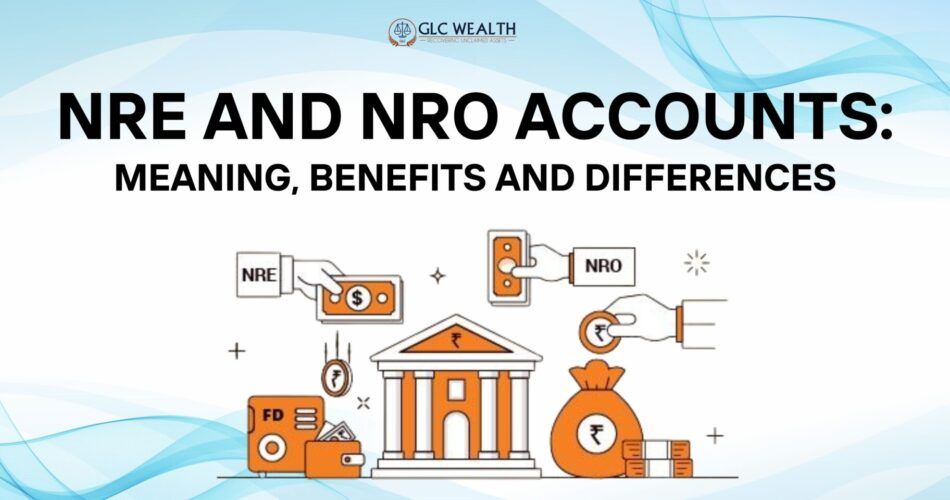
NRE and NRO Accounts: Benefits and Differences
India is seeing a daily rise in the number of citizens who decide to leave the country in search of better employment possibilities, all the while maintaining financial ties to their family roots in India via monetary transactions. These people are called NRIs. Those who own an Indian passport yet live outside of the country are referred to as NRIs or Non-Residents of India.
How do these individuals handle their financial transactions with their Indian families?
The Indian government strongly values the financial inflow that non-resident immigrants (NRIs) bring into the nation. To facilitate their transactions, the government offers NRO (Non-Resident Ordinary) and NRE (Non-Resident External) accounts.
NRE Account
The NRE account provides total security and is denominated in Indian rupees. These accounts might be fixed deposit, recurring, savings, or current accounts. When you deposit foreign currency into the account, it gets converted to Indian rupees. Without any issues or limitations, you can move your money (principal and interest amount) from an NRE account to a foreign account. The money you put into these accounts must be generated outside of India.
NRO Account
To handle their money received in India, non-resident Indians (NRIs) maintain current or savings accounts in India. Account customers have easy access to deposit and manage their rupee funds. You can receive money from the account in either foreign or Indian currency. You and a local Indian or even an NRI may jointly apply for an NRO account. You can even move money from your existing NRE account. However, TDS (Tax Deducted at Source) applies to the interest you earn in this account. Withholding Tax at the Source (TDS).
Difference between NRE and NRO accounts
If you’re an NRI who wants to secure your earnings in India or is searching for a dependable means to send money to your family in India. If you’re looking to open a bank account in India, you’ve come to the correct spot. Here are the key distinctions between an NRE and an NRO account to assist you trade money in a safer and more comfortable way.
|
Functions |
NRE | NRO |
|
Full-Form |
Non-Resident External Account | Non-Resident Ordinary Account |
|
Definition |
It’s a kind of account that non-resident Indians (NRIs) own, via which they can send money back to India. | An NRI keeps this kind of account to handle their money made in India. |
|
Tax Clause |
Tax-free interest is accrued on the balance held in this account. | This account’s interest earnings are subject to taxation. |
|
Repatriability |
This account’s balance is transferable, meaning that both the base amount and any interest generated can be moved completely and without paying fees. |
The money from this account can be transferred only after the account holder has paid all the applied taxes with a limit of 1 million USD in a financial cycle after taking prior approvals. |
| How to Choose? | If you want to send money back to your country of origin from your place of residence, you should open an NRE account. If you want to store your assets or save liquid funds, you can also select this account. | If you want to keep your revenues from India in Indian rupees, you should open an NRO account. Rent, stock, proceeds from the sale of an asset, etc. are a few examples of this type of income. |
|
Account Holding |
Two NRIs or an NRI and an Indian citizen may jointly hold an NRE account. | An NRI and an Indian citizen or two NRIs can jointly hold an NRO account. |
|
Deposit and Withdrawal Currency |
Foreign currency deposits and withdrawals are both possible in Indian rupees. | Both foreign and Indian currencies can be used to deposit money, however, only INR can be taken out. |
|
Exchange Rate |
Exchange rate fluctuations may have an effect. | No impact from exchange rate changes. |
In summary, NRI account holders have unique advantages over both NRE and NRO accounts. Depending on how you want to handle your financial activities, you can choose an appropriate account.
For More Article Click Here
